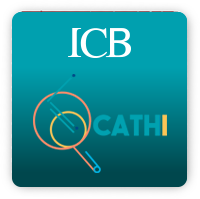Phytochemical Characterization and Antiplatelet Activity of Mexican Red Wines and Their By-products
Red wines and their grape pomaces are important sources of phenolic compounds. Inhibition of plateletaggregation is one of the mechanisms proposed for cardioprotective effect of phenolic compounds fromwine and grape pomace; however, phenolic content is affected by region, variety and winemaking proc...
Đã lưu trong:
| Tác giả khác: | , , , , , , , , |
|---|---|
| Định dạng: | Artículo |
| Ngôn ngữ: | en_US |
| Được phát hành: |
2021
|
| Những chủ đề: | |
| Truy cập trực tuyến: | https://doi.org/10.21548/42-1-4450 https://www.journals.ac.za/index.php/sajev/article/view/4450 |
| Các nhãn: |
Thêm thẻ
Không có thẻ, Là người đầu tiên thẻ bản ghi này!
|
| Tóm tắt: | Red wines and their grape pomaces are important sources of phenolic compounds. Inhibition of plateletaggregation is one of the mechanisms proposed for cardioprotective effect of phenolic compounds fromwine and grape pomace; however, phenolic content is affected by region, variety and winemaking process.In the present study, antiplatelet effect of red wines and grape pomaces was related to its phenolic content(determined by spectrophotometric techniques) and profile (determined using HPLC-MS/MS). in vitroAnti-platelet aggregation was determined using human platelets. Results showed that Zinfandel wine andCabernet Sauvignon grape pomace presented the highest phenolic content. Phenolic profiles presenteddifferences in the presence of flavonoids and oligomeric tannins. Results from platelet aggregationshowed that Merlot and Petit Verdot wines and Petit Verdot grape pomace sample presented the highestantiaggregant effect. These results indicate that antiplatelet effect could be related to phenolic profile thanphenolic content in wines and grape pomaces. Cardioprotective effect of red wines and grape pomacecould be related to specific compounds such as monomeric and polymeric flavan-3-ols. |
|---|
